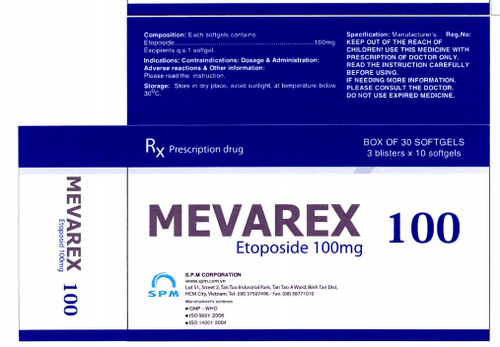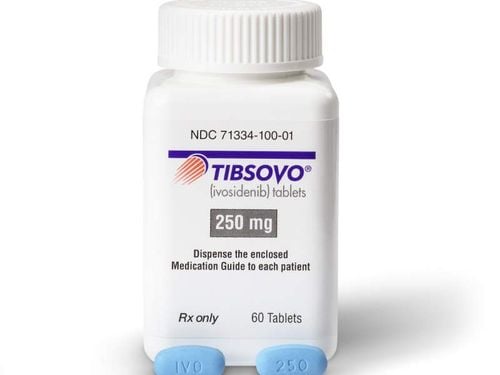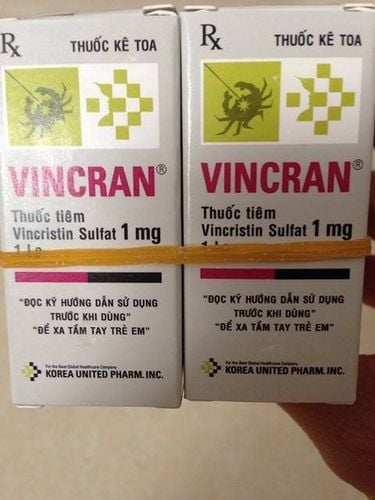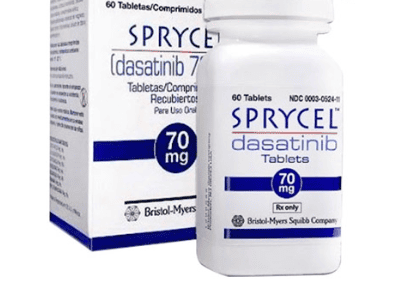This is an automatically translated article.
Blood cancer is one of the malignant cancers, causing sufferers to face serious health problems, even reaching the door of death.1. How do blood cancer cells form and develop?
Our body is made up of billions of cells. These cells are constantly being produced, growing and replacing dead cells, or helping to repair damaged cells after an injury.
Normally cells grow and multiply in a certain sequence, but damaged genes can develop abnormally and thereby develop into tumours, including:
Benign tumors (non-cancerous): Non-invasive to organs and surrounding tissues of the body. Malignant (cancerous): These tumors will grow, may be limited in their initial range, but with timely treatment or treatment, they will invade surrounding tissues , becomes invasive cancer. The transformation from a normal cell to a cancerous cell goes through many different stages, also known as the transformation from a precancerous lesion to a malignant tumor. It can be said that the interaction between a person's genetic factors and external factors are the factors that cause this transformation. External factors include:
Physical carcinogens: Ionizing radiation and ultraviolet rays Chemical carcinogens: For example asbestos (asbestos), aflatoxin (a contaminant) food contamination), arsenic (a drinking water contaminant) and components of tobacco smoke Biological carcinogens: Infection with certain viruses, bacteria, or parasites.
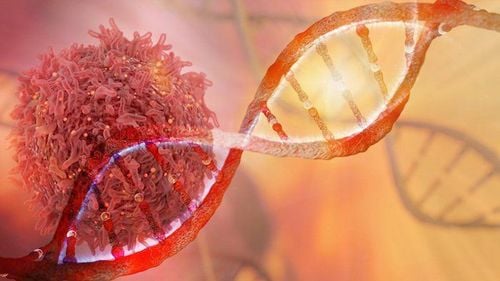
Tế bào ung thư máu phát triển và nhân lên theo một trình tự nhất định
Platelets are responsible for helping blood clot, avoiding bleeding in the wound. When the number of white blood cells increases suddenly, they will be deprived of food as well as a source of nutrients, so the white blood cells will eat the red blood cells themselves. This causes the body to not have enough blood to nourish, gradually the body becomes weak, has no resistance and it is a premise to cause blood cancer.
2. Types of blood cancer
Blood cancer has three main groups, including:
2.1 Leukemia Leukemia plays an extremely important role in the immune system, it has the ability to fight infections. However, the sudden increase and strong growth of this cell makes the patient lose the inherent resistance of the body.
In acute leukemia, a large number of immature white blood cells are produced and remain in the body, they clog the bone marrow and prevent the bone marrow from producing cells other blood. Leukemia causes severe anemia, which lasts until death.
2.2 Lymphoma This type of blood cancer affects the lymphatic system. The lymphatic system is an extremely important part of the immune system, it plays a role in protecting the body from infection and disease. When the body produces too many lymphocytes in a disorganized manner and their existence causes an overload, the immune system is severely damaged. This type of cancer can develop in many parts of the body, including lymph nodes, bone marrow, spleen and several other organs,...
2.3 Multiple myeloma This is a form of blood cancer of the plasma cells- are found in the bone marrow and make antibodies to fight infection. With multiple myeloma, a large number of plasma cells abnormally gather in the bone marrow and prevent the bone marrow from working as it should.
3. Blood cancer in children
Currently, blood cancer in children is becoming more and more common. According to research from experts, children with blood cancer are usually between the ages of 3 and 4 years old. However, the manifestations of the disease are often not obvious and are difficult to recognize, such as erratic fever, pale skin, mucous membranes, sweating a lot at night, .. These symptoms usually appear only in a few days or weeks.
Types of blood cancers commonly seen in children include:
Acute lymphocytic leukemia (ALL) Acute myeloid leukemia (AML) Chronic myelogenous leukemia (CML) Chronic lymphocytic leukemia (CLL) Juvenile myelogenous leukemia (JMML)
4. Causes of blood cancer
Currently, medicine has not yet determined the specific cause of blood cancer, but there are a number of risk factors that can cause the disease, including:
Frequent exposure to radioactive sources or patients receiving radiation therapy Cancer patients receiving pharmaceutical treatment Those who have to work in environments that contain many harmful chemicals such as benzene and formaldehyde. Diseases caused by genetic changes such as Down syndrome, viruses or other blood diseases.
5. What are the symptoms of blood cancer?
The signs and symptoms of blood cancer often vary depending on the number of white blood cells in the blood and on where the leukocytes gather. Here are the most common symptoms in patients with blood cancer:
High fever, chills, accompanied by flu-like symptoms Headache, joint pain due to compression of the marrow The body is always extremely tired, pale white skin due to lack of red blood cells Or bleeding gums due to impaired clotting function of platelets Ease of infection due to white blood cells not performing the function of fighting infection Anorexia, uncontrolled weight loss Control The body is prone to bleeding and bruising Frequent night sweats Discomfort or swelling in the abdomen
6. Treatment of blood cancer
Blood cancer is a type of cancer with rapid and complex progression, if not detected and treated promptly can lead to death. Before choosing treatment methods, patients will be tested and analyzed carefully. The treatment regimen will also depend on the stage of the disease and the patient's health condition. A number of blood cancer treatments may be prescribed to the patient, including:6.1 Chemotherapy Killing blood cancer cells with drugs, injections, intravenous infusions or injections into the cerebrospinal fluid. Besides, it also helps to prevent the growth and development of leukemia cells. This method will be executed cyclically.
6.2 Radiation therapy Kills cancer cells with high energy beams
6.3 Biological therapy T destroys blood cancer cells by infusing monoclonal antibodies into the patient. This method also helps to improve the body's natural immune system and slow down the growth of blood cancer cells.
6.4 Marrow Transplant/Stem Cell Transplant This method is usually applied after the patient has been treated with chemotherapy or radiation. The patient will be transplanted healthy stem cells through a large vein. These transplanted cells will replace cells that were destroyed during previous treatment.
7. Measures to prevent blood cancer
Blood cancer will be very difficult to treat if the disease is detected at a late stage. Therefore, you should pay attention to your own health problems as well as proactively prevent diseases in advance. To effectively prevent blood cancer, you can do the following:
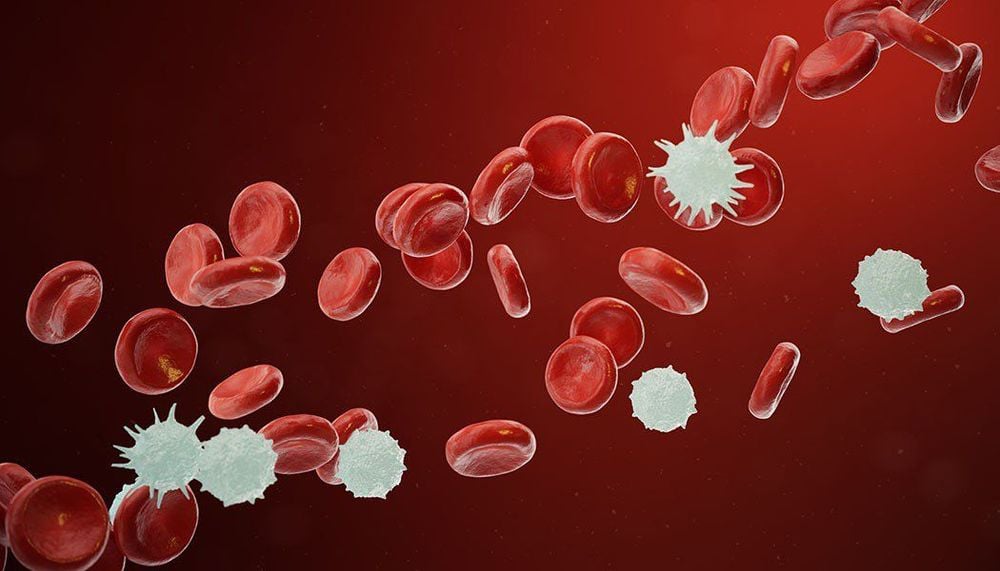
Để phòng tránh bệnh ung thư máu chúng ta cần làm gì?
Avoid frequent exposure to chemicals: For example herbicides, benzene Avoid exposure to radiation: You should try to minimize your exposure to high levels of radiation. Exercise every day: Regular exercise is very good in preventing cancers, especially blood cancer. Every day you should set aside 30 minutes for exercise. Scientific diet: Reduce your consumption of saturated and trans fats, eat whole grains, fruits and vegetables. In addition, early cancer screening is considered the "golden key" for early detection and effective cancer prevention and treatment regimens, thereby reducing the risk of death and reducing costs. for the patient. Currently, Vinmec International General Hospital has been a leading medical facility in the field of detection, the high-tech cancer screening package at Vinmec gives you the opportunity to screen and detect timely. disease warning risks to optimize treatment effectiveness and improve quality of life.
Any questions about cancer screening at Vinmec, please come directly to the hospital or contact HERE for answers.
The article references the source: health.clevelandclinic.org
MORE:
Can blood tests detect cancer? Importance of blood and urine tests in the package of general health check-ups





